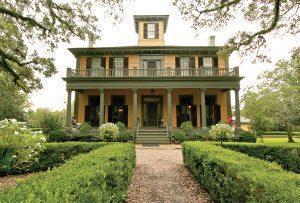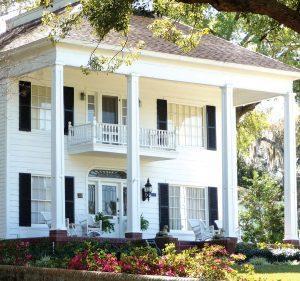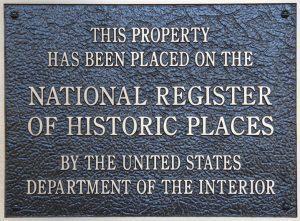The news is out: old is in. Historic homes have been steadily making a comeback, recently gaining popularity among home buyers, which is most likely due to the massive following behind the king and queen of home restoration, HGTV’s Fixer Upper stars, Chip and Joanna Gaines. While there certainly is a market for buying brand new, top-of-the-line homes, many people are captivated by antique features that are sure to make you swoon, such as original hardwood floors, authentic shiplap, and built-in china cabinets, all of which are commonly found in historic homes.
Having grown up in a historic home myself, which was built in the 1920s in Lakeland, Florida, I have a genuine appreciation for the ups and downs that accompany a historic home. On one hand, original hardwood floors have a rustic allure to them; on the other hand, they can be troublesome to get used to, as each step emits a squeak or creak beneath you. Having said that, there are definitely pros and cons to be aware of when buying a historic home, so check them out below before you go house hunting.
Pros:
- Historic homes are one-of-a-kind. The character and aesthetic that comes with them is what many people are looking for, and it simply cannot be manufactured. These quirks and intricacies set them apart from the rest of the mass-produced market.
- Historic homes are commonly found in an established neighborhood with a strong sense of community. These neighborhoods are typically more stable, since homeowners – and even renters – statistically tend to stay in their home longer than people who live in non-historical neighborhoods.
- Historic homes possess quality craftsmanship. In addition to the charm and exquisite detail that pocket doors and impressive woodworking bring, there is something to be said for the longevity of the durable lumber which was used decades ago in many historic homes.
Cons:
- Historic equals old, and old things often come with a lot of fixing up to do. In many historic homes, it is common to face outdated electrical wiring, termite damage, and a slew of other challenges, which can be an undertaking as a new homebuyer.
- Historic homes have limitations on renovations. If a home is located in an area dubbed as a historic district, the homeowners can be restricted to a minimal amount of upgrading and remodeling. These regulations are set in order to preserve the historical nature of the home.
- Insurance costs will be pricier. Since historic homes often come with complications, some personal insurance agencies do not offer the type of coverage necessary, causing homebuyers to resort to a more expensive type of insurance, called historic property insurance.
Now that you have a good idea of the pros and cons regarding historic homes, you may be wondering what constitutes a home as historic. According to the National Register of Historic Places, a home is deemed historic if it either possesses the features that are characteristic of historical architecture, captures the essence of a given time period, or is associated with famous people of the past. You can find more information on historic homes by checking out the National Register Criteria for Evaluation on the U.S. Department of the Interior website or by contacting your local historic board.
When it comes to historic homes in Tallahassee, one of the main areas you will find them is near the old Capitol. Decades ago, this area was the center of business, commerce, and trade, dating all the way back to the Reconstruction era and the Spanish War. During that time, many travelers came to the Capitol in Tallahassee to enjoy the Myers Park area for both business and recreation, which was covered in moss-draped oak parks and natural ponds. If you are looking to buy a historic home in Tallahassee, the neighborhoods you should check out are Lafayette Park, Capitol Park, Hillcrest, and Betton Hills. If you want to see how homes in Tallahassee match up to other areas around the state, visit www.oldhouses.com.
All things considered, those who are able to live in a historic home at some point in their life will certainly face challenges, but in the end, those challenges will be worth it knowing that you are living in your very own piece of history. ![]()









